Financial System Adaptability and Resilience
Financial systems differ across countries and tend to evolve slowly over time. Their structure is typically stable, but their resilience is often tested. A well-functioning financial system is vital for economic development, as it ensures that capital flows to the most productive and valuable investment opportunities. However, systemic vulnerabilities can have far-reaching consequences. For example, the 2007–08 global financial crisis emerged from within the financial sector itself when complex financial products fuelled a credit bubble in the U.S. housing market, threatening global economic stability when the bubble burst. That event led to extensive policy and regulatory reforms to strengthen financial system resilience.
Financial systems continue to face significant challenges. External shocks like the COVID-19 pandemic, the climate crisis, the green economic transition, and the energy crisis driven by geopolitical conflict all underscore the importance of financial systems that can absorb shocks and adapt to changing economic conditions. Motivated by these pressing issues, we investigate how financial systems respond to crises, which institutions and policies improve resilience, and the role of finance systems' setup in broader economic transformations. We use diverse data sources, including bank and firm-level data, regulatory reports, and house price and election data, to inform evidence-based policy.
Research Cluster
Financial Resilience and RegulationYour contact

- Department Financial Markets
EXTERNAL FUNDING
08.2022 ‐ 07.2025
OVERHANG: Debt overhang and green investments - the role of banks in climate-friendly management of emission-intensive fixed assets
The collaborative project “Debt Overhang and Green Investments” (OVERHANG) aims to investigate the role of banks in the climate-friendly management of emission-intensive fixed assets. This will identify policy-relevant insights on financial regulation, government-controlled lending and financial stability, as well as raise awareness among indebted stakeholders.
01.2015 ‐ 12.2019
Interactions between Bank-specific Risk and Macroeconomic Performance
07.2016 ‐ 12.2018
Relationship Lenders and Unorthodox Monetary Policy: Investment, Employment, and Resource Reallocation Effects
Leibniz Association
We combine a number of unique and proprietary data sources to measure the impact of relationship lenders and unconventional monetary policy during and after the European sovereign debt crisis on the real economy. Establishing systematic links between different research data centers (Forschungsdatenzentren, FDZ) and central banks with detailed micro-level information on both financial and real activity is the stand-alone proposition of our proposal. The main objective is to permit the identification of causal effects, or their absence, regarding which policies were conducive to mitigate financial shocks and stimulate real economic activities, such as employment, investment, or the closure of plants.
Refereed Publications
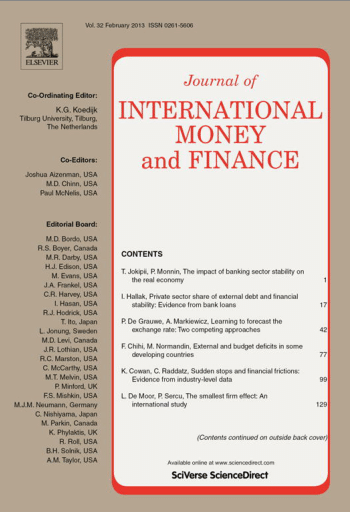
The Diplomacy Discount in Global Syndicated Loans
in: Journal of International Money and Finance, February 2022
Abstract
This paper investigates whether state-to-state political ties with the United States affect the pricing of global syndicated loans. We find that a one-standard-deviation improvement in state political ties between the U.S. and the government of a borrower’s home country is associated with a 14.7 basis points lower loan spread, shaving off about 11.8 million USD in interest payments over the duration of the average loan for borrowers. Results also show that the effect of political ties is stronger for narrower and more concentrated loan syndicates, when lead arrangers are U.S. banks, during periods in which the U.S. is engaged in armed conflicts, when the U.S. president belongs to the Republican Party, and for borrowers with better balance sheets and prior lending relationships. Notably, not all firms benefit equally, as cross-listed firms and firms in countries with strong institutional quality and ability to attract institutional investors are much less affected by political ties.

Do Banks Value Borrowers' Environmental Record? Evidence from Financial Contracts
in: Journal of Business Ethics, December 2021
Abstract
Banks play a unique role in society. They not only maximize profits but also consider the interests of stakeholders. We investigate whether banks consider firms’ pollution records in their lending decisions. The evidence shows that banks offer significantly higher loan spreads, higher total borrowing costs, shorter loan maturities, and greater collateral to firms with higher levels of chemical pollution. The costly effects are stronger for borrowers with greater risk and weaker corporate governance. Further, the results show that banks with higher social responsibility account for their borrowers’ environmental performance and charge higher loan spreads to those with poor performance. These results support the idea that banks with higher social responsibility can promote the practice of business ethics in firms.
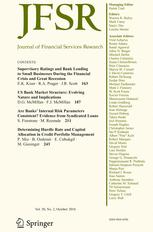
Political Uncertainty and Bank Loan Contracts: Does Government Quality Matter?
in: Journal of Financial Services Research, December 2021
Abstract
We investigate the relation between political uncertainty and bank loan spreads using a sample of loan contracts for the G20 firms during the period from 1982 to 2015. We find that banks charge firms higher loan spreads and require more covenants during election years when domestic political risks are elevated. Greater differences in the support ratios of opinion polls on candidates lead to the lower cost of bank loans. This political effect also lessens when the government quality of the borrower’s country is better than that of the lender’s country. Better quality government can lower the political risk component of bank loan spreads.
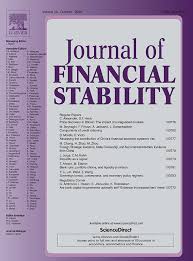
The Impact of Political Uncertainty on Institutional Ownership
in: Journal of Financial Stability, December 2021
Abstract
This paper provides original evidence from institutional investors that political uncertainty greatly affects investment behavior. Using institutional holdings of common stock, we find that institutions significantly reduce their holdings by 0.8–2.3% points during presidential election years. Such effect holds for gubernatorial elections with cross-state-border difference-in-difference analysis and for tests using a political uncertainty index. The effect is the opposite for American Depository Receipts (ADRs). In addition, we find that institutions benefit financially from the observed strategy, and such strategy is in line with predicted outcomes of presidential election polls.

Banking Globalization, Local Lending, and Labor Market Effects: Micro-level Evidence from Brazil
in: Journal of Financial Stability, October 2021
Abstract
Recent financial crises have prompted the interest in understanding how banking globalization interacts with domestic institutions in shaping foreign shocks’ transmission. This paper uses regional banking data from Brazil to show that a foreign funding shock to banks negatively affects lending by their regional branches. This effect increases in the presence of frictions in internal capital markets, which affect branches’ capacity to access funding from other regions via intra-bank linkages. These results also matter on an aggregate level, as municipality-level credit and job flows drop in exposed regions. Policies aiming to reduce the fragmented structure of regional banking markets could moderate the propagation of foreign shocks.
Working Papers
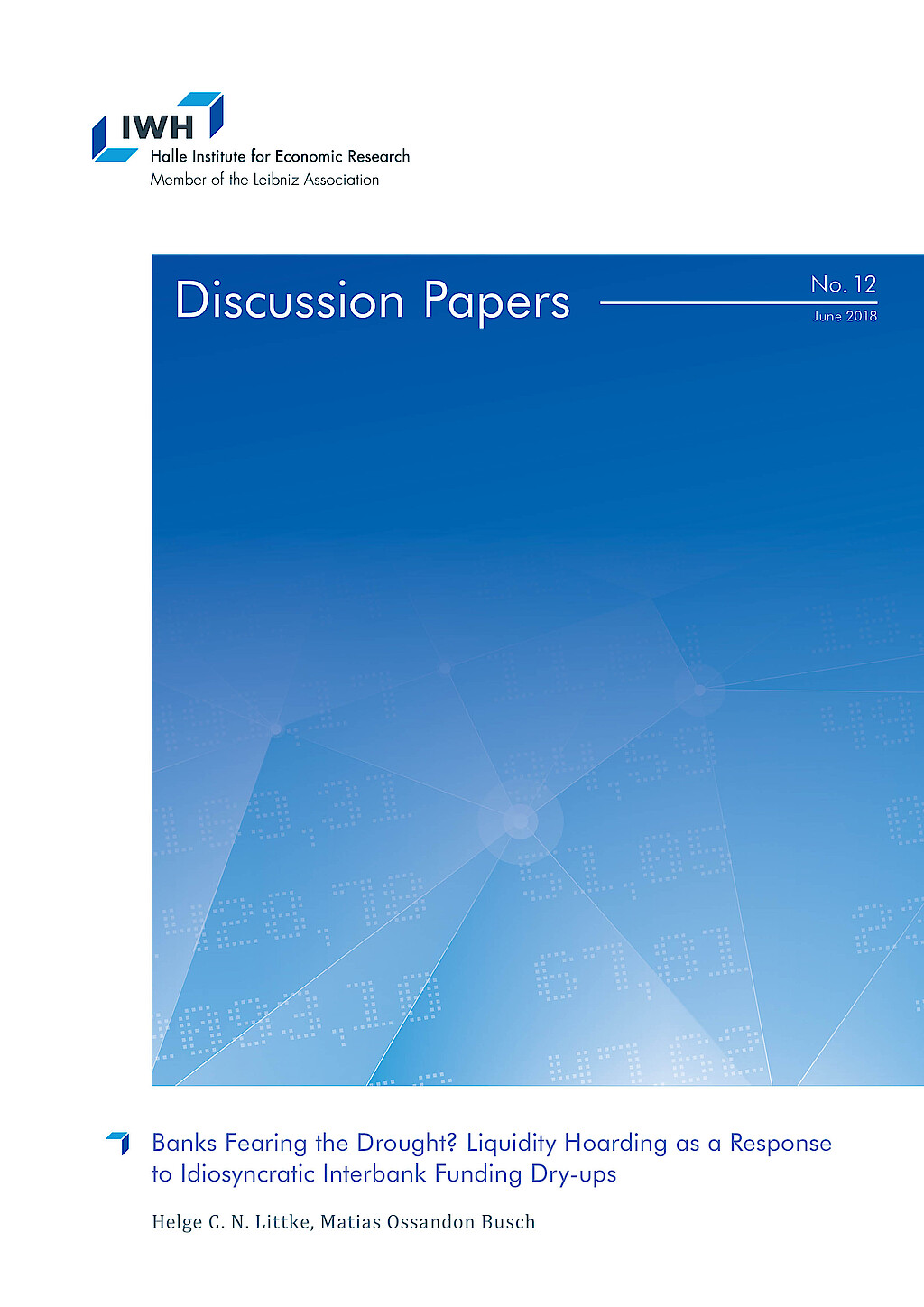
Banks Fearing the Drought? Liquidity Hoarding as a Response to Idiosyncratic Interbank Funding Dry-ups
in: IWH Discussion Papers, No. 12, 2018
Abstract
Since the global financial crisis, economic literature has highlighted banks’ inclination to bolster up their liquid asset positions once the aggregate interbank funding market experiences a dry-up. To this regard, we show that liquidity hoarding and its detrimental effects on credit can also be triggered by idiosyncratic, i.e. bankspecific, interbank funding shocks with implications for monetary policy. Combining a unique data set of the Brazilian banking sector with a novel identification strategy enables us to overcome previous limitations for studying this phenomenon as a bankspecific event. This strategy further helps us to analyse how disruptions in the bank headquarters’ interbank market can lead to liquidity and lending adjustments at the regional bank branch level. From the perspective of the policy maker, understanding this market-to-market spillover effect is important as local bank branch markets are characterised by market concentration and relationship lending.
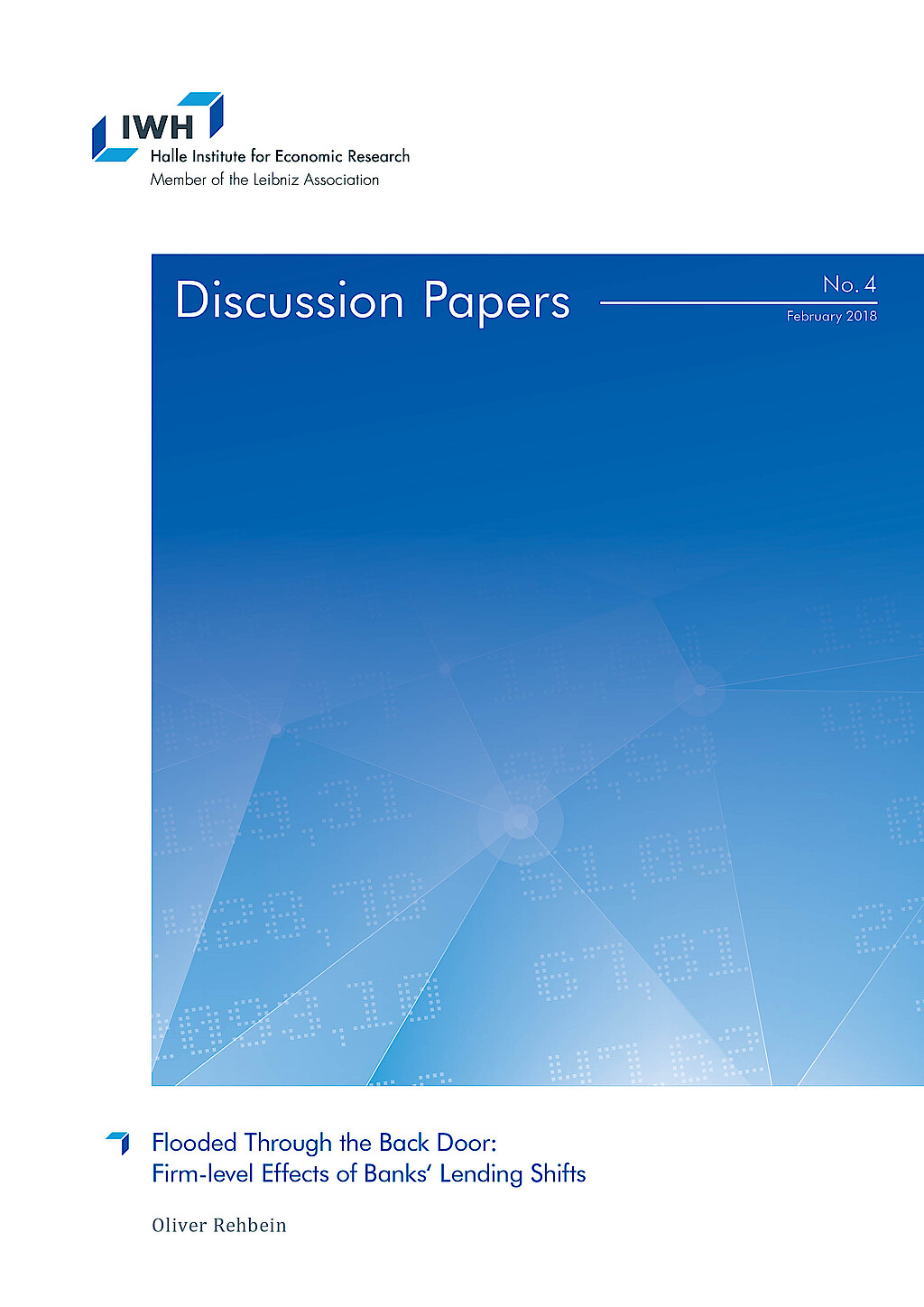
Flooded Through the Back Door: Firm-level Effects of Banks‘ Lending Shifts
in: IWH Discussion Papers, No. 4, 2018
Abstract
I show that natural disasters transmit to firms in non-disaster areas via their banks. This spillover of non-financial shocks through the banking system is stronger for banks with less regulatory capital. Firms connected to a disaster-exposed bank with below median capital reduce their employment by 11% and their fixed assets by 20% compared to firms in the same region without such a bank during the 2013 flooding in Germany. Relationship banking and higher firm capital also mitigate the effects of such negative cross-regional spillovers.
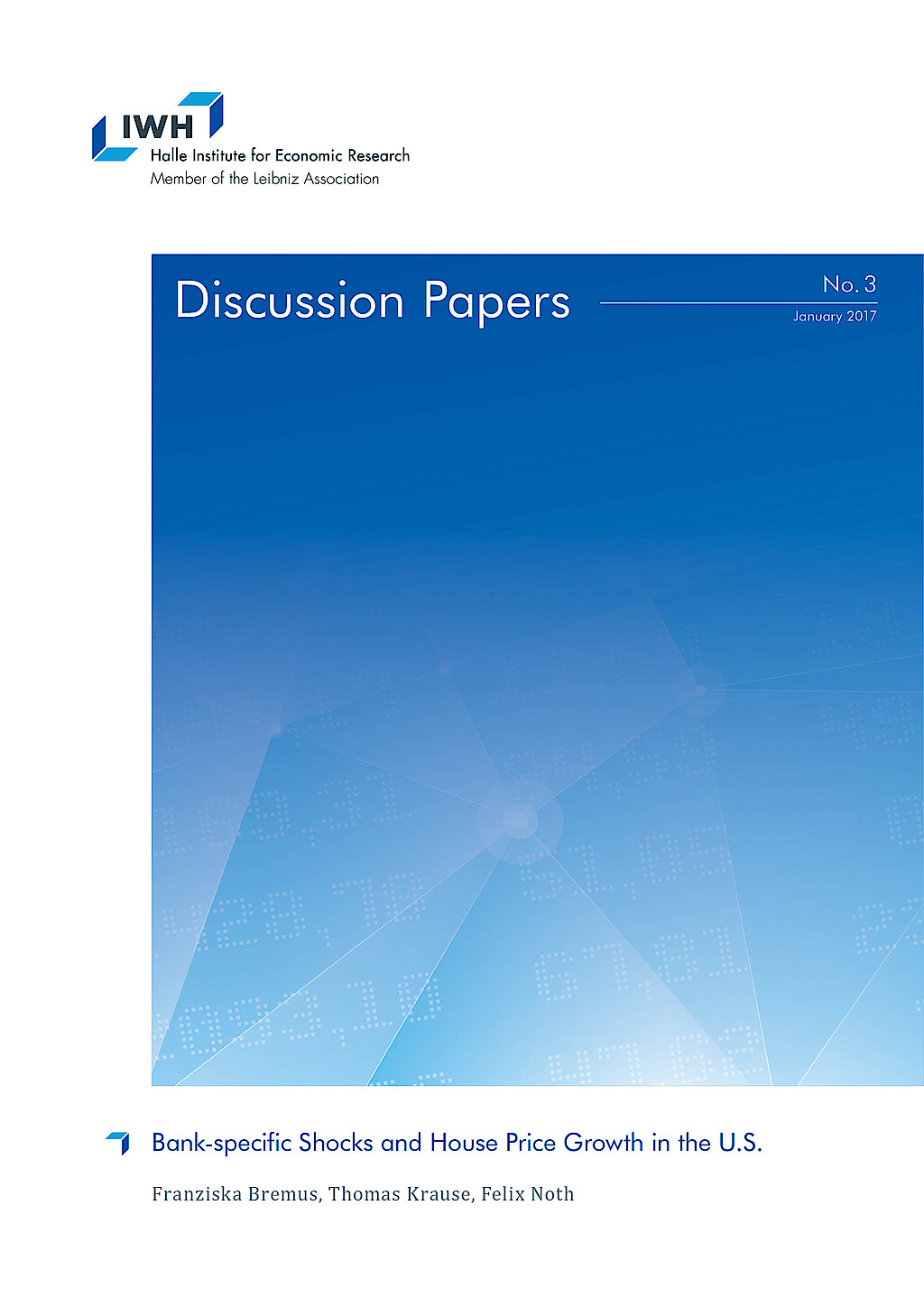
Bank-specific Shocks and House Price Growth in the U.S.
in: IWH Discussion Papers, No. 3, 2017
Abstract
This paper investigates the link between mortgage supply shocks at the banklevel and regional house price growth in the U.S. using micro-level data on mortgage markets from the Home Mortgage Disclosure Act for the 1990-2014 period. Our results suggest that bank-specific mortgage supply shocks indeed affect house price growth at the regional level. The larger the idiosyncratic shocks to newly issued mortgages, the stronger is house price growth. We show that the positive link between idiosyncratic mortgage shocks and regional house price growth is very robust and economically meaningful, however not very persistent since it fades out after two years.
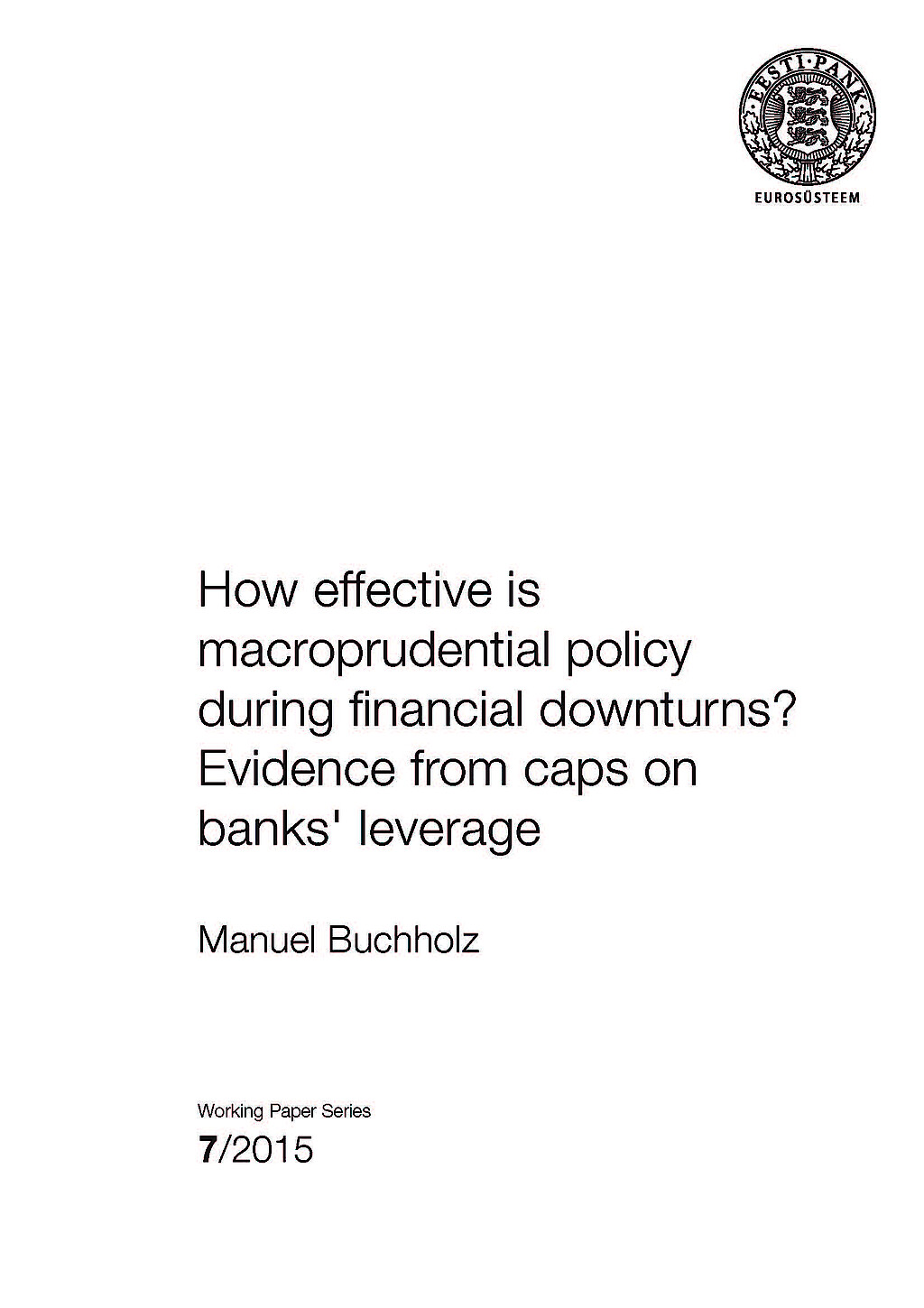
How Effective is Macroprudential Policy during Financial Downturns? Evidence from Caps on Banks' Leverage
in: Working Papers of Eesti Pank, No. 7, 2015
Abstract
This paper investigates the effect of a macroprudential policy instrument, caps on banks' leverage, on domestic credit to the private sector since the Global Financial Crisis. Applying a difference-in-differences approach to a panel of 69 advanced and emerging economies over 2002–2014, we show that real credit grew after the crisis at considerably higher rates in countries which had implemented the leverage cap prior to the crisis. This stabilising effect is more pronounced for countries in which banks had a higher pre-crisis capital ratio, which suggests that after the crisis, banks were able to draw on buffers built up prior to the crisis due to the regulation. The results are robust to different choices of subsamples as well as to competing explanations such as standard adjustment to the pre-crisis credit boom.

Monetary Policy under the Microscope: Intra-bank Transmission of Asset Purchase Programs of the ECB
in: IWH Discussion Papers, No. 9, 2015
Abstract
With a unique loan portfolio maintained by a top-20 universal bank in Germany, this study tests whether unconventional monetary policy by the European Central Bank (ECB) reduced corporate borrowing costs. We decompose corporate lending rates into refinancing costs, as determined by money markets, and markups that the bank is able to charge its customers in regional markets. This decomposition reveals how banks transmit monetary policy within their organizations. To identify policy effects on loan rate components, we exploit the co-existence of eurozone-wide security purchase programs and regional fiscal policies at the district level. ECB purchase programs reduced refinancing costs significantly, even in an economy not specifically targeted for sovereign debt stress relief, but not loan rates themselves. However, asset purchases mitigated those loan price hikes due to additional credit demand stimulated by regional tax policy and enabled the bank to realize larger economic margins.



















